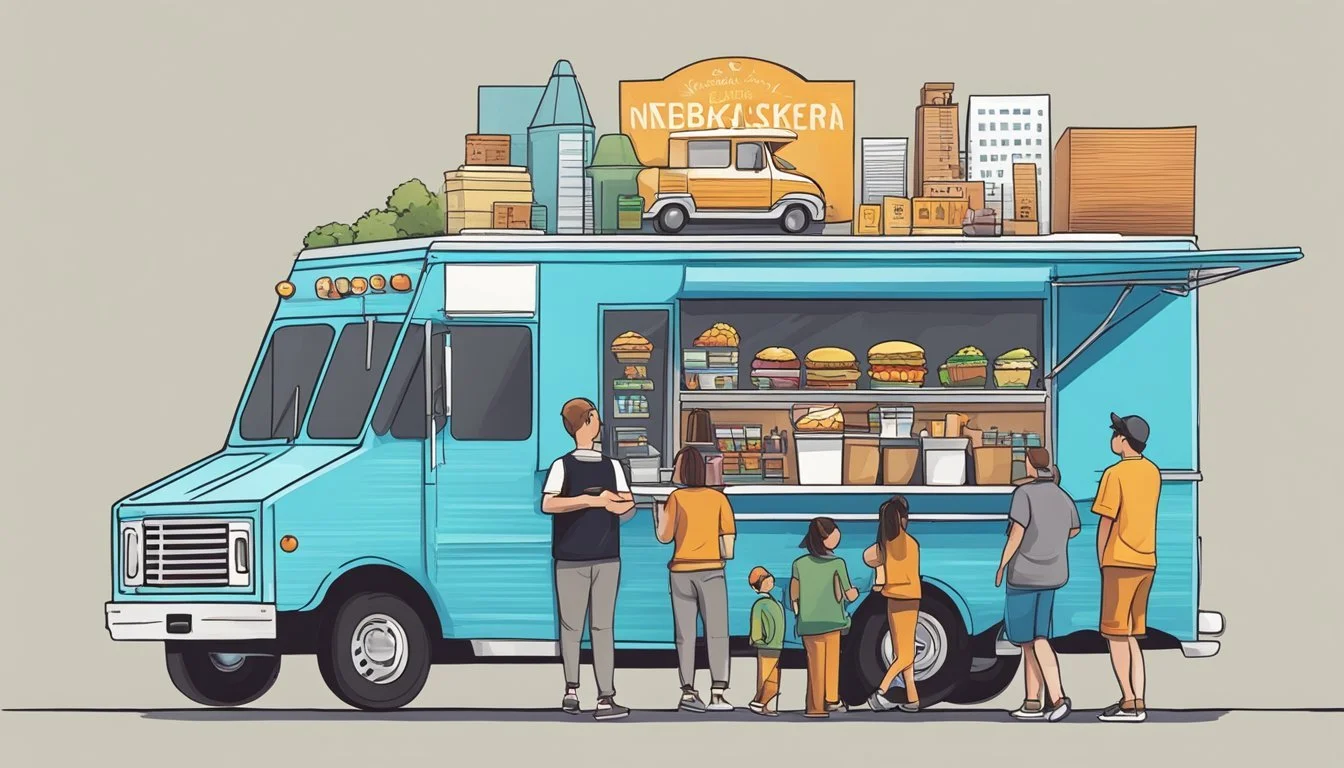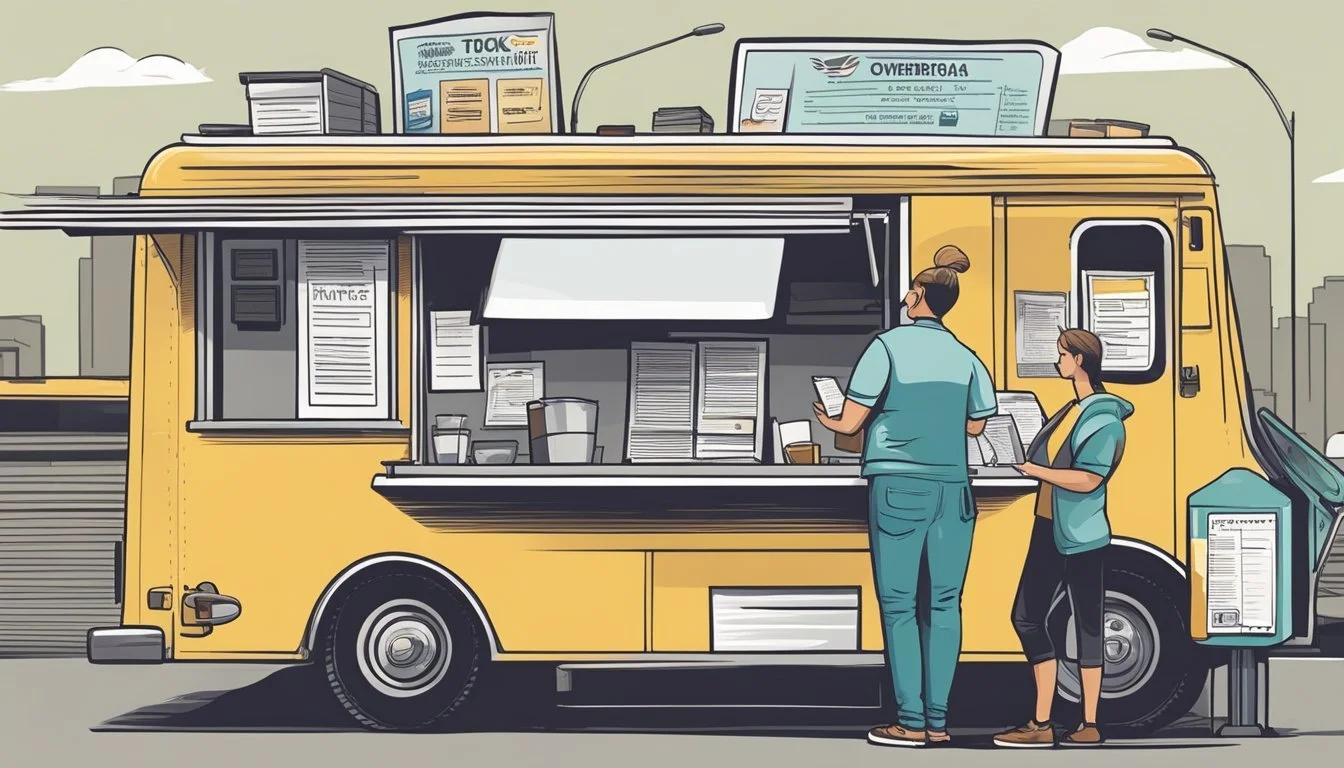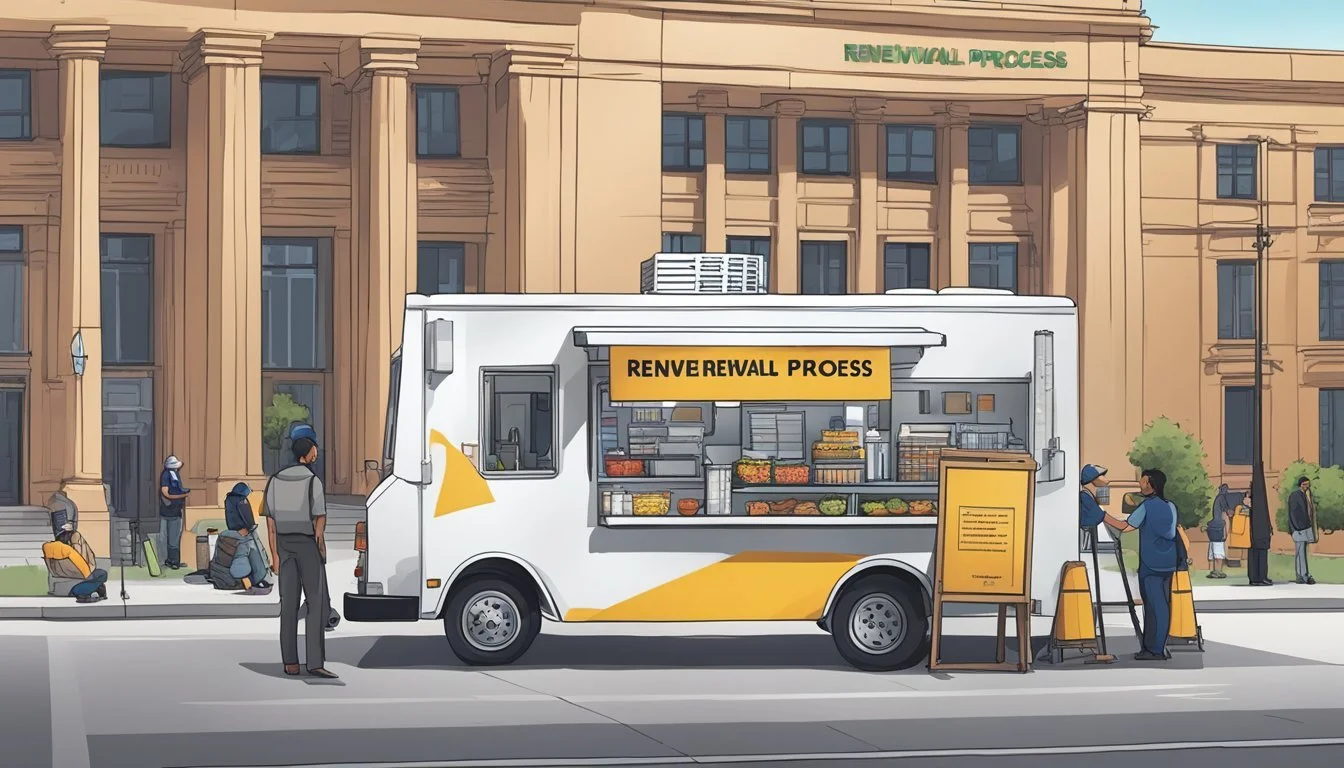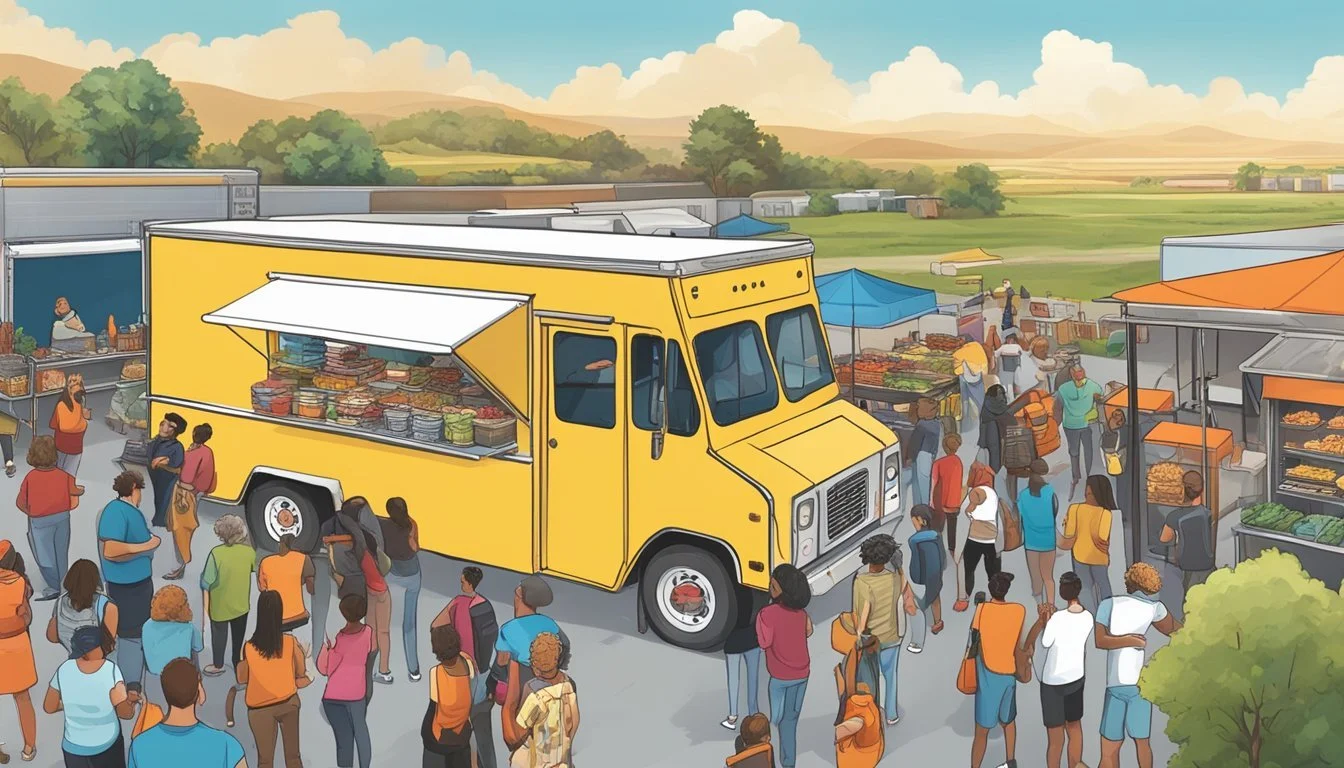Food Truck Laws in Nebraska
Key Regulations for Mobile Vendors
The food truck scene in Nebraska, mirroring the national trend, has flourished over the years, becoming an integral part of the state's culinary culture. With the rise in popularity of these mobile food establishments, understanding Nebraska's food truck regulations is crucial for anyone looking to enter this vibrant market. The Nebraska Pure Food Act, along with specific regulations tailored for mobile food establishments, governs the operation of food trucks in the state. These policies ensure public safety and fair competition among food vendors.
Nebraska law mandates that food trucks comply with a range of health and safety regulations, much like their brick-and-mortar counterparts. This includes food safety ordinances, proper waste disposal regulations, and compliance with the Nebraska Food Code. Entrepreneurs must navigate through the process of obtaining the necessary licenses and permits before hitting the road. Additionally, since September 2, 2023, the Nebraska Department of Agriculture requires all food trucks to register, highlighting the state's proactive approach to managing food safety.
Adhering to the relevant laws ensures that food trucks can operate without legal interruptions and maintain the trust of their patrons. The growth of social media usage among food truck operators to market their businesses reflects an industry that is not only compliant with regulations but also savvy in engaging with its customers. Instances like the success story of Choi's Kogi food truck, which now boasts several stationary locations and a significant Twitter following, set the stage for upcoming mobile food vendors to thrive within the legal framework laid out by the state of Nebraska.
Nebraska's Food Truck Industry Overview
The food truck industry in Nebraska has seen significant growth, fostering a dynamic community of entrepreneurs who bring a variety of cuisines to the streets. In cities like Lincoln, food trucks have become a staple, offering an affordable and convenient option for dining.
During the summer months, food truck entrepreneurs take advantage of the warm weather and longer days by participating in local events and festivals. This not only provides a platform for entrepreneurs to showcase their culinary skills but also adds to the vibrant community atmosphere that residents and visitors alike can enjoy.
The industry’s growth can be attributed to Nebraska's supportive regulatory environment, which has established clear guidelines for operating mobile food establishments. These regulations facilitate the operation of food trucks while ensuring food safety and public health.
Here is a simplified breakdown of Nebraska's food truck requirements:
Permits and Licenses: Obtaining the necessary permits and licenses is crucial for legality.
Food Safety: Compliance with food safety ordinances protects consumers.
Waste Disposal: Regulations regarding proper waste disposal must be followed.
Health Laws: Adherence to public health laws is mandatory to maintain operations.
Food trucks in Lincoln and other Nebraska cities often become an integral part of the local community, not just as eateries, but as gathering spots that contribute to the social fabric. They offer a platform for entrepreneurs to experiment with flavor combinations and concepts without the overhead of a brick-and-mortar establishment. This has allowed for a more diverse and accessible food scene across Nebraska.
Starting a Food Truck Business
When one embarks on the journey to start a food truck, they must consider the structure of the business and craft a comprehensive business plan. These foundational steps are critical in navigating the complex landscape of food industry regulations, especially in Nebraska.
Business Structure
Selecting the appropriate business structure is a pivotal choice for any food truck entrepreneur in Nebraska. Common structures include:
Sole Proprietorship: Simplest form; beneficial for a single owner-operator scenario.
Partnership: Suitable for teams starting a business together; requires clear agreements.
Limited Liability Company (LLC): Provides liability protection and flexible management, often preferred for its balance of structure and ease.
Each structure has implications for taxation, liability, and ongoing compliance requirements. Nebraska food truck entrepreneurs often prefer the LLC model for its liability protection and potential tax advantages.
Creating a Business Plan
Developing a strong business plan is essential. A well-structured plan covers:
Menu and Ingredients: Detailed menu choices with carefully sourced ingredients to ensure profit margins are maintained.
Financial Projections: Estimations of revenue, costs, and expected profits that reflect market research and realistic assessments.
Creating a business plan involves an in-depth analysis and presents a roadmap that helps mitigate risk and guide operations. It's important to account for all aspects, from initial investment to day-to-day expenses, in pursuit of a profitable food truck business in Nebraska.
Food Truck Registration and Permitting
To operate a food truck in Nebraska, it is crucial for vendors to navigate various permitting processes and registration requirements efficiently. Adherence to these regulations ensures that a food truck business operates legally and in compliance with state and local food safety laws.
Obtaining Necessary Permits
Food truck operators must acquire specific permits related to food handling and safety. In Nebraska, this includes compliance with the Nebraska Pure Food Act and obtaining a permit from the Nebraska Department of Agriculture. Each city may also have additional health and safety requirements which food trucks need to meet. It's essential for business owners to check for any city-specific permits and the health department's specifications for mobile food units.
Business License and EIN
Alongside health and safety permits, food truck owners should apply for a business license which legitimizes the business into a legal entity. To handle taxation correctly, obtaining an Employer Identification Number (EIN) from the IRS is necessary. The EIN is crucial for tax purposes and is often required when opening a business bank account or hiring employees.
Vehicle and Mobile Unit Registration
The food truck itself, considered a vehicle, must be registered with the Nebraska Department of Motor Vehicles. Proof of this registration is often required when applying for permits. Moreover, since a food truck is a mobile food business, their unit needs to comply with specific requirements that may include fire safety standards, proper waste disposal systems, and equipment for food temperature control.
By ensuring each of these components is correctly handled, food truck owners in Nebraska can set their mobile food business on the path to compliance and success.
Local and State Regulations
In Nebraska, food trucks are subject to a variety of local and state regulations that govern their operation. These regulations are in place to ensure food safety, compliance with agricultural standards, and adherence to zoning and parking laws.
Health Department Requirements
Local health departments in Nebraska enforce health and safety standards to protect public health. Food trucks must obtain a valid food service license, which includes details about the food operator and the type of food served. Operators must also follow the Nebraska Food Code, which stipulates proper food handling practices.
Nebraska Department of Agriculture Compliance
Under the Nebraska Pure Food Act, the Nebraska Department of Agriculture (NDA) plays a critical role in the administration and enforcement of food safety standards. As of September 2, 2023, food trucks are required to register with the NDA, ensuring compliance with statewide health regulations.
Zoning and Parking Laws
Food trucks in Nebraska must navigate various zoning and parking regulations that can differ by locality. These laws determine where food trucks can operate and for how long. For instance, certain areas may restrict the duration a food truck can remain parked, in an effort to manage traffic and community impact.
Operational Compliance for Food Trucks
In Nebraska, food trucks operators must navigate a comprehensive set of operational compliance regulations. These ensure the safety and quality of food service to all consumers.
Kitchen Equipment and Facilities
Food trucks must be equipped with the necessary kitchen equipment to maintain safe food handling. This includes refrigeration units to keep food at safe temperatures and a three-compartment sink for washing, rinsing, and sanitizing. All food preparation areas and food contact surfaces must be made from materials that are easily cleanable and non-absorbent. Additionally, adequate light bulbs must be shielded to prevent contamination.
Waste Disposal and Sanitation
Proper waste disposal is mandatory, and trucks must have facilities for the collection and storage of waste and grease that do not contaminate food or water supply. Sanitation extends to the maintenance of non-food contact surfaces to prevent an environment conducive to pests. Handwashing stations with hot and cold running water are required alongside proper storage solutions to separate food from cleaning supplies and personal items.
Food Preparation and Safety Standards
Food trucks in Nebraska must adhere to strict food safety standards with regular inspections ensuring compliance. Food safety includes managing temperature controls in refrigeration units and ice bins, ensuring that perishable items are kept at safe temperatures. The state's requirements also cover proper protocols for handling raw and cooked foods to avoid cross-contamination.
Financial Considerations for Food Truck Operators
When entering the food truck industry in Nebraska, operators must have a firm grasp on the financial aspects of the business, especially regarding taxes and insurance. Understanding these facets is vital for maintaining profitability and legal compliance.
Understanding and Managing Taxes
In Nebraska, food truck operators are required to navigate a variety of taxes that impact their bottom line. Sales tax is a crucial element, collected on the sale of the food to customers. Operating in Nebraska, businesses must be diligent in tracking sales to accurately report and remit taxes to the state. The Nebraska Food Truck Requirements provide a guide for compliance. Food truck owners need to be aware of the fluctuating nature of profit margins and how taxes influence their earnings.
Insurance and Liability
Securing the right insurance is a safeguard against unforeseen incidents for food truck operators. Liability insurance is one of the most critical policies they need, as it protects against claims resulting from injuries or damages to third parties. Nebraska food truck operators should also consider insurance that covers their vehicle, equipment, and business interruption. The proper insurance not only shields the business from financial pressures but also offers peace of mind. Information about specific insurance requirements can be found with the Nebraska Department of Agriculture.
Food Truck Inspection and Renewal Processes
In Nebraska, food trucks are subject to specific procedures to ensure their operations meet health and safety standards. These processes involve routine inspections and adherence to license renewal protocols as well as staying updated with regulation changes.
Routine Inspections
Routine inspections are a critical component of food truck operations in Nebraska. Each food truck must pass a comprehensive inspection that scrutinizes various health and safety aspects before being granted a Mobile Food Establishment License. This inspection checks for:
Proper food storage and temperature control
Cleanliness and sanitation
Adequate handwashing facilities
Compliance with the Nebraska Food Code
Failure to comply with these standards can result in delayed permits or fines. Food trucks can expect random checks to ensure ongoing compliance.
License Renewals and Regulations Updates
Securing a food service license or a mobile food unit license requires a Nebraska food truck to undergo an initial inspection, after which periodic renewals are necessary. The Nebraska Department of Agriculture outlines that all licenses expire yearly and must be renewed prior to the expiration date to avoid penalties.
Food trucks also need to stay informed about updates to food safety regulations. Legislative changes, like those adopted by LB 562 in 2023, can affect licensing requirements or operational procedures. Food truck owners are responsible for understanding and implementing any updates to the food truck permitting process. Regularly consulting state resources can help avoid compliance issues.
Engaging with the Nebraska Food Truck Community
In Nebraska’s food truck community, participation in local events and networking with other food truck owners are instrumental for success. These activities help vendors to integrate with the community, share experiences, and often lead to mutually beneficial partnerships.
Participation in Local Events
Food truck owners in Nebraska can enhance their visibility and build a loyal customer base by participating in local events. These events range from farmers' markets and festivals to street fairs and private gatherings. They should refer to the Mobile Food Establishment Registry for compliance with regulations and to stay updated on opportunities. Being active in such events not only boosts sales but also embeds food trucks into the fabric of local culture.
Networking with Other Food Truck Owners
Networking is vital for food truck owners aiming to thrive in Nebraska's competitive mobile food scene. Building relationships can lead to important insights about operation efficiencies, preferred locations, and innovative food offerings. Sharing knowledge on navigating Food Truck Laws, Requirements and Regulations in Nebraska can be immensely helpful. Collaborating with other vendors often results in a more dynamic, resourceful, and resilient food truck community.
Legislation and Advocacy
The landscape of policy governing food trucks in Nebraska is in a state of evolution, driven by legislative updates and the work of various advocacy groups. This section delves into recent legislative actions and the roles of key organizations in shaping food truck laws.
Current and Proposed Legislation
LB 562, a significant piece of legislation, was introduced to streamline the food truck permitting process. This amendment aimed to reduce overregulation, thereby fostering entrepreneurship and ensuring safe dining experiences for consumers. Spearheaded by Sen. Tony Vargas and modified by Sen. Ray Aguilar, with amendment AM 1563, LB 562 was designed to clarify and standardize the regulations for food trucks across Nebraska, which previously varied from one locale to another.
A particular aspect of this legislation is the establishment of reciprocity agreements in specific Nebraska counties—allowing for food truck permits to be acknowledged across county lines without the need for additional permits. Introduced as Legislative Bill 740, it encourages consistency and mobility for food truck operators, an essential factor considering their mobile nature.
Advocacy Groups and Resources
The Center for Rural Affairs has been pivotal in advocating for reform in food truck legislation. They have recognized the challenges posed by a "mishmash" of regulations and the need for a more unified approach. Their support of LB 562 demonstrates their commitment to assisting food truck entrepreneurs and contributing to the local economy by promoting accessible and low-cost dining options. More on their efforts and positions can be found on their announcement page.
Resources, such as the Nebraska Department of Agriculture's Mobile Food Establishment Registry, offer guidance and information on legal requirements, reflecting the changes brought about by the new legislation. Their site is a hub for compliance information and is tied directly to LB 562, outlining the state's commitment to streamline regulations in the interest of public health and business efficiency.
Case Studies and Success Stories
Nick Maestas and his renowned Muchachos Food Truck exemplify the triumph within Nebraska’s burgeoning food truck scene. With a specialty in New Mexican-inspired barbecue, the culinary venture began as a food truck, establishing itself in the community and setting a high bar for food truck success in the region.
Muchachos’ rise to prominence illuminates how food entrepreneurs can thrive under current regulations when strategies align with market demands. Their creative fusion of flavors has not only garnered a loyal patronage but also highlighted the potential for food trucks to evolve into full-fledged businesses; Maestas's journey from a mobile eatery to owning a brick-and-mortar restaurant underscores this transition.
In a broader context, the impact of the food truck industry in Nebraska is encapsulated by tales like Choi's Kogi food truck, which grossed over $2 million in sales in its inaugural year. These stories bring to light the economic capabilities of food trucks, reflecting the synergy between culinary innovation and social media savvy, with several food trucks amassing substantial followings.
Table: Snapshot of Muchachos Success
Launch Year: Opening of Muchachos Food Truck
Following Year: Transition to Physical Restaurant
Impact: Pioneering New Mexican BBQ in NE
The food truck industry in Nebraska, through examples like Maestas's Muchachos, showcases the viability and dynamism of this entrepreneurial path. Their success inspires potential food truck owners, signaling an optimistic future for the industry.
Future Trends and Growth Opportunities
The food truck industry in Nebraska shows potential for substantial growth and offers promising avenues for entrepreneurs. There is a concentrated effort from lawmakers to create a more supportive environment for these mobile eateries, as demonstrated by the adoption of LB 304, which expands the locations where non-hazardous foods can be sold.
Innovation within the industry is facilitated by legislative actions such as LB 740, which is targeted at establishing a reciprocity agreement for food truck permits across key counties, thereby simplifying the bureaucratic process. This initiative could enhance operational fluidity, encouraging new food trucks to emerge and existing ones to expand their reach.
Recent legislative endeavors, like LB 321, aim to broaden Nebraska's cottage food law, including provisions for temperature-sensitive foods. This move is indicative of the state's recognition of the significance of small, food-based businesses in spurring local economic development.
Furthermore, the food truck industry can anticipate prospects for diversification. Nebraska's positive steps towards a more "food truck friendly" state augur well for capturing the public's interest in diverse culinary experiences. This growing consumer demand can pave the way for a rich variety of food truck offerings, fostering a vibrant and competitive market.
Legislative Support: Reduced Barriers to Entry
Permit Reciprocity: Operational Efficiency
Expanded Food Laws: Product Diversification
Consumer Interest: Continuous Market Growth
These legislative refinements and cultural shifts point to a landscape where food truck operators can thrive, provided they navigate regulations adeptly and continue to drive innovation in their culinary offerings.
Additional Resources and Support
Food truck operators in Nebraska can rely on a network of support to navigate the regulatory landscape. A primary resource is the Center for Rural Affairs, an organization that champions rural communities and provides guidance on entrepreneurship and compliance with food truck regulations.
Local Health Departments are pivotal in ensuring food safety. They administer health codes and conduct inspections. Operators must comply with local requirements and can seek assistance from these departments for information on health and safety standards.
For consumer protection matters, food truck operators can consult the Nebraska Department of Agriculture's Mobile Food Establishment Registry. With details on the Nebraska Pure Food Act and other regulatory measures, they ensure consumers receive safe and properly handled food.
Center for Rural Affairs: Guidance on legislative updates, business development
Local Health Departments: Food safety regulations, inspection protocols
Nebraska Department of Agriculture: Registry and compliance for mobile food establishmentsOperators should keep abreast of legal changes, like the ones introduced by LB 562 of 2023, to understand necessary permits and the benefits of inter-county reciprocity on permits, advocated for by legislators striving to support small businesses.
Through these resources, food truck operators gain access to accurate information and support systems for their endeavors in Nebraska. They are advised to remain proactive in seeking out these resources to ensure their operations are not only successful but also in compliance with state and local laws.










